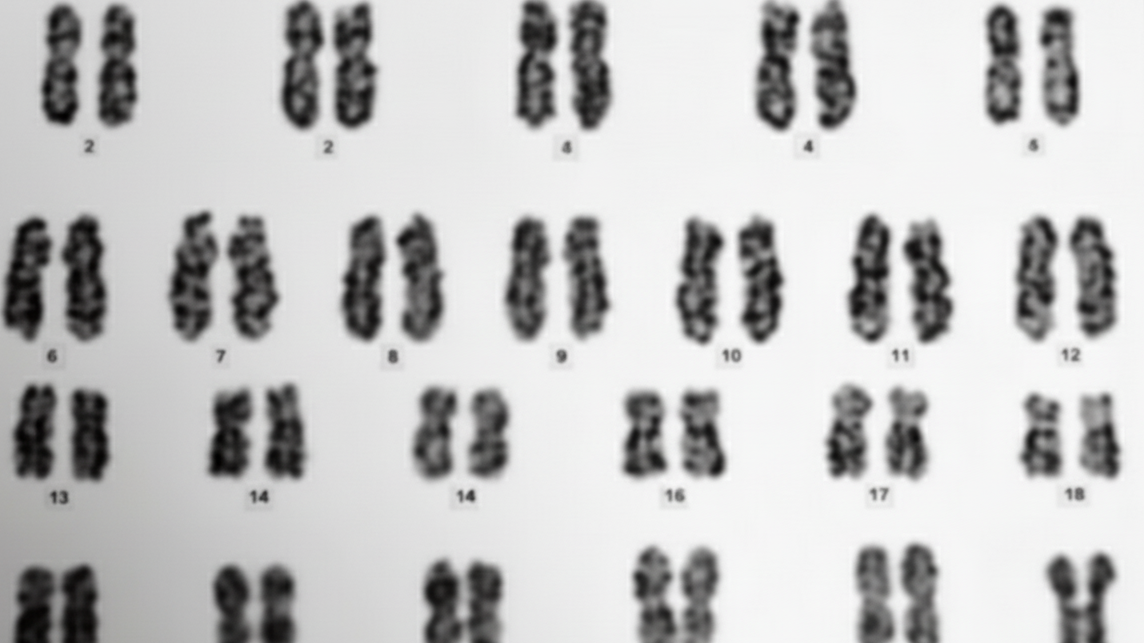Reactivated X Chromosome Boosts Brain Health in Older Females: A New Frontier to Preserve Cognition
Carina Garcia
August 2025
It is well-established that women have longer life expectancies and a slower rate of cognitive aging.[1,2] Recent research from UCSF potentially explains differences in aging between sexes. Females possess two X chromosomes – an active X and inactive X, otherwise known as the Barr body. The X chromosome comprises 5% of the genome, however, there are limited studies focusing exclusively on the role of X chromosomes in the brain.[3,4,5] UCSF researchers found that in older female mice, gene expression of the “inactive” X promoted brain connectivity and cognition. “Cognition is one of our biggest biomedical problems, but things are changeable in the aging brain, and the X chromosome clearly can teach us what’s possible,” said neurology professor Dena Dubal, MD, PhD, and David A. Coulter, Endowed Chair in Aging and Neurodegenerative Disease at UCSF.[5] Therefore, research of the sex differences in aging can not only aid our understanding of health and illness in women, but also highlight potential therapeutic interventions to benefit human health.[3]

Reactivated X Genes Linked to Brain Function
In March 2025, UCSF researchers engineered two strains of laboratory mice, with the X chromosome from one strain silenced. This hybrid mice sample allowed researchers to gather data of genetic expression from each X chromosome. Researchers concentrated their collection in the hippocampus, a critical site for learning and memory known to decline with age. Remarkably, in older-aged mice (equivalent to a 65-year-old human), the X chromosome expressed about 20 genes in different cells of the hippocampus – one including Plp1, a component of myelin that is integral to neural signaling.[3,5]
“We immediately thought this might explain how women’s brains remain resilient in typical aging, because men wouldn’t have this extra X,” said Margaret Gadek, a graduate student in UCSF’s combined MD and PhD Medical Scientist Training Program.[5]
Another study analyzing the association of X chromosomes with cognitive changes among a cohort of 508 older individuals (mean age of 88.4) demonstrated that the higher expression of specific X-linked genes were significantly related to slower cognitive decline only in women. Therefore, the gene activity of the X chromosome may contribute to cognitive resilience in aging women.[2]
The Promise of X-Linked Interventions in Aging Brains
“Are there interventions that can amplify genes like Plp1 from the X chromosome to slow the decline – for both women and men – as we age?” said Dubal.[5]
Plp1 is a myelin component that supports neural insulation and signal transmission.[5] UCSF researchers found elevation of Plp1 in the hippocampus of aging female mice, ultimately improving cognition.[3] To investigate the relation between Plp1 and cognitive resilience, researchers expressed Plp1 in the hippocampus of aging females and male mice. This elevation of Plp1 improved cognitive resilience and performance on learning and memory tests. Given these compelling findings, this is promising for extending the understanding of cognition in older women, the association with the gene expression of the second X, and overall human health.[3,5]
References
[1] Dattani, S., & Rodés-Guirao, L. (2023, November 27). Why do women live longer than men?OurWorldinData.org. https://ourworldindata.org/why-do-women-live-longer-than-men
[2] Davis, E. J., Solsberg, C. W., White, C. C., Miñones-Moyano, E., Sirota, M., Chibnik, L., Bennett, D. A., De Jager, P. L., Yokoyama, J. S., & Dubal, D. B. (2021). Sex-specific association of the X chromosome with cognitive change and tau pathology in aging and Alzheimer disease. JAMA Neurology, 78(10), 1249. https://doi.org/10.1001/jamaneurol.2021.2806
[3] Gadek, M., Shaw, C. K., Abdulai-Saiku, S., Saloner, R., Marino, F., Wang, D., Bonham, L. W., Yokoyama, J. S., Panning, B., Benayoun, B. A., Casaletto, K. B., Ramani, V., & Dubal, D. B. (2025). Aging activates escape of the silent X chromosome in the female mouse hippocampus. Science Advances, 11(10). https://doi.org/10.1126/sciadv.ads8169
[4] The eXceptional nature of the X chromosome. (2018). Human Molecular Genetics, 27(2), 242-249. https://doi.org/10.1093/hmg/ddy148
[5] UC San Francisco. (2025, March). The ‘Silent’ X chromosome gives the aging female brain a boost. https://www.ucsf.edu/news/2025/03/429571/silent-x-chromosome-gives-aging-female-brain-boost





